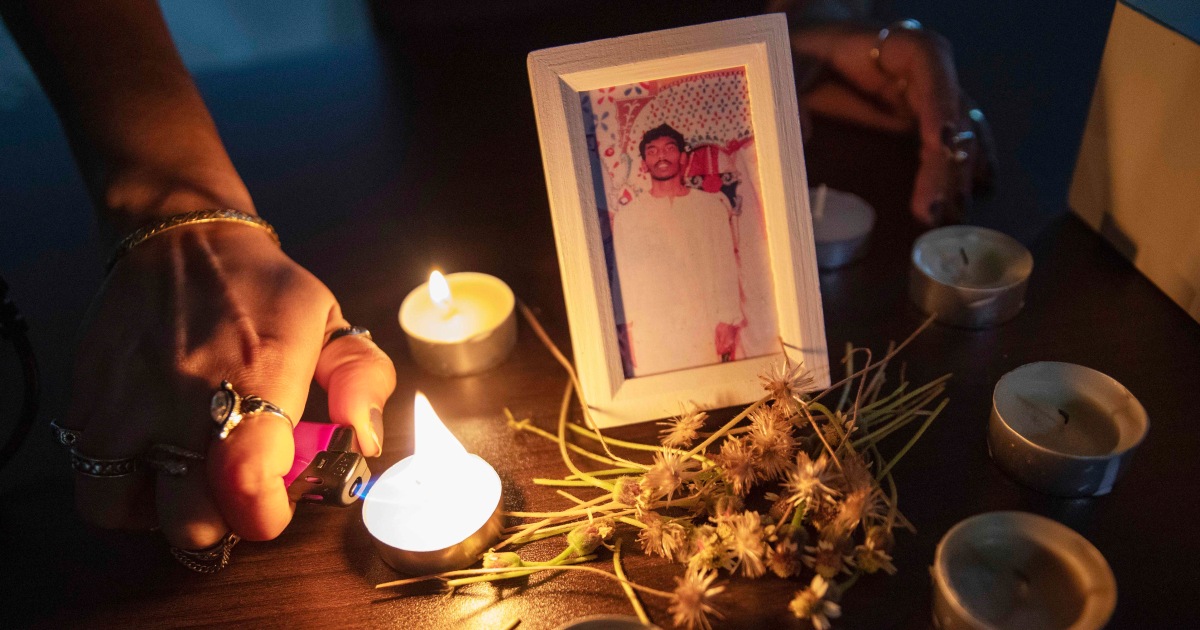Singapore executed a man accused of coordinating a cannabis delivery on Wednesday, despite pleas for clemency from his family and protests by activists that he was convicted on weak evidence.
Tangaraju Suppiah, 46, was sentenced to death in 2018 for being an accessory to the trafficking of 2.2 pounds of cannabis. Under Singapore law, trafficking more than 500 grams of cannabis can result in the death penalty.
Tangaraju was hanged on Wednesday morning and his family received a death certificate, according to a tweet from activist Kirsten Han of the Transformative Justice Collective, which advocates for the abolition of the death penalty in Singapore.
Although Tangaraju was not caught with the cannabis, prosecutors said phone numbers traced him back as the person responsible for coordinating the delivery of the drugs. Tangaraju had maintained that he was not the one communicating with the others involved in the case.
Speaking at a United Nations human rights briefing on Tuesday, spokeswoman Ravina Shamdasani called on the Singapore government to adopt a «formal moratorium» on executions for drug-related offences.
“Imposing the death penalty for drug offenses is inconsistent with international norms and standards,” Shamdasani said, adding that mounting evidence shows the death penalty is ineffective as a deterrent.
Singaporean authorities say there is a deterrent effect, citing studies that traffickers transport amounts below the threshold that would carry the death penalty.
The imposition of the death penalty for drugs in the island state contrasts with that of its neighbors. In Thailand, cannabis has essentially been legalized and Malaysia has removed the mandatory death penalty for serious crimes.
Singapore executed 11 people last year for drug offences. One case that raised international concern involved a Malaysian man whose lawyers said he had a mental disability.
Anti-Death Penalty Asia Network condemned Tangaraju’s execution as «reprehensible.»
«The Singapore government’s continued use of the death penalty is an act of flagrant disregard for international human rights standards and casts doubt on the legitimacy of Singapore’s criminal justice system,» the statement said.
Relatives and activists had sent letters to the President of Singapore, Halimah Yacob, asking for clemency. In a video posted by Transformative Justice Collective, Tangaraju’s niece and nephew appealed to the public to express their concern to the government about Tangaraju’s impending execution.
An application by Tangaraju on Monday to stay the execution was dismissed without a hearing on Tuesday.
“Singapore claims it gives death row inmates ‘due process’, but in reality fair trial violations in capital cases are the norm: Defendants are left without legal representation when faced with a imminent execution, as lawyers taking such cases are intimidated and harassed,” said Maya Foa, director of the nonprofit human rights organization Reprieve.
Critics say Singapore’s death penalty has mainly caught low-level mules and done little to stop drug dealers and organized syndicates. But the Singapore government says that all those executed have been given due process under the law and that the death penalty is necessary to protect its citizens.
British billionaire Richard Branson, who is an outspoken opponent of the death penalty, also called for the execution to be halted in a blog post, saying «Singapore may be about to kill an innocent man.»
The Singaporean authorities criticized Branson’s accusations, stating that he had shown a lack of respect for the Singaporean judicial system, as the evidence had shown Tangaraju to be guilty.

